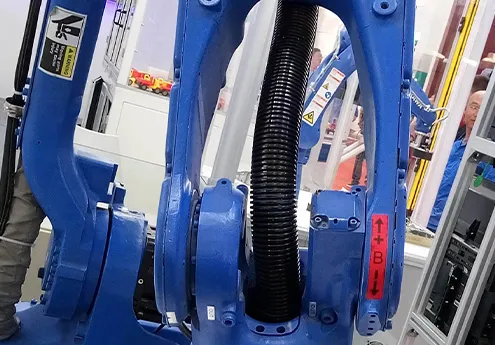Flexible PVC Conduit Solutions for Efficient Wiring and Cable Management
Understanding Corrugated PVC Conduit A Versatile Solution for Electrical Wiring
Corrugated PVC conduit, often simply referred to as PVC conduit, is a type of plastic tubing widely used in electrical wiring applications. Its unique design and material properties offer numerous advantages, making it a popular choice among electricians and builders. In this article, we will explore what corrugated PVC conduit is, its benefits, applications, and considerations for use.
What is Corrugated PVC Conduit?
Corrugated PVC conduit is a flexible, lightweight, and durable tubing made from polyvinyl chloride (PVC). The 'corrugated' design refers to the series of ridges and grooves that run along its length, allowing for increased flexibility and resilience. This conduit is primarily used to protect electrical wires and cables from physical damage, moisture, and other environmental factors. It is often found in residential, commercial, and industrial settings.
Benefits of Corrugated PVC Conduit
One of the most significant advantages of corrugated PVC conduit is its flexibility. Unlike rigid PVC conduit, the corrugated variant can bend and twist, making it easier to install in tight or irregular spaces. This flexibility reduces the need for additional fittings and connectors, saving time and costs during installation.
Another benefit is its resistance to chemicals and moisture. Corrugated PVC conduit does not corrode like metal conduit and can withstand exposure to various chemicals, making it suitable for environments where other materials might fail. Additionally, its water resistance helps protect the electrical wiring inside from potential damage, especially in outdoor applications or areas prone to flooding.
corrugated pvc conduit

The lightweight nature of corrugated PVC conduit also contributes to its popularity. Electricians find it easier to handle and transport than heavier alternatives, which simplifies the installation process. Moreover, its durability ensures that it can withstand the rigors of construction and installation without compromising its protective qualities.
Applications of Corrugated PVC Conduit
Corrugated PVC conduit is utilized in various applications. In residential settings, it is commonly used to protect wiring for outdoor lighting, irrigation systems, and in areas prone to moisture. Commercial properties often use this conduit for wiring in warehouses, shopping centers, and office buildings where flexibility and protection are paramount.
In industrial environments, corrugated PVC conduit can protect electrical and data cables in factories and manufacturing plants, ensuring that these critical systems operate safely and efficiently. It is also used in telecommunications, providing a shield for cabling that is essential for uninterrupted service.
Considerations When Using Corrugated PVC Conduit
Despite its many advantages, there are considerations to keep in mind when using corrugated PVC conduit. First, it's essential to check local electrical codes and regulations, as the use of certain types of conduit may be restricted in specific jurisdictions. Additionally, while PVC conduit is effective in many environments, it may not be suitable for applications involving very high temperatures or heavy mechanical loads.
In conclusion, corrugated PVC conduit is a versatile and practical solution for protecting electrical wiring. Its flexibility, durability, and resistance to moisture and chemicals make it an ideal choice for a wide range of applications across various industries. As electrical installation practices continue to evolve, the demand for reliable materials like corrugated PVC conduit will only increase. By understanding its properties and potential applications, electricians and builders can make informed decisions to ensure safe and effective wiring solutions.








